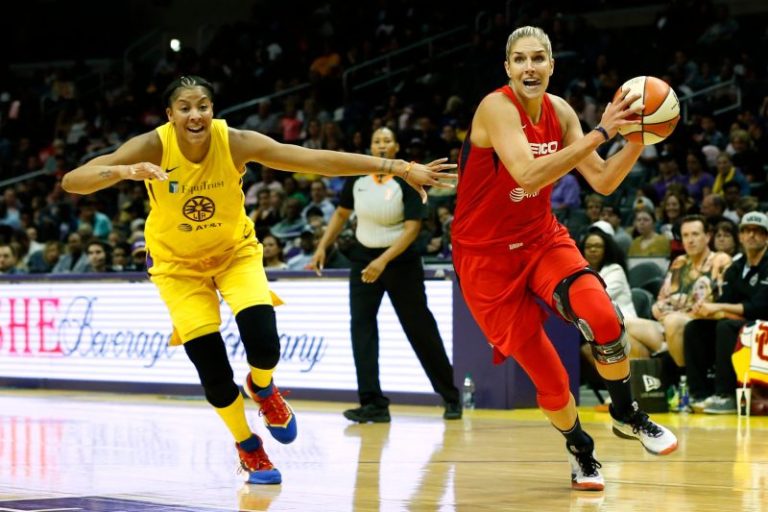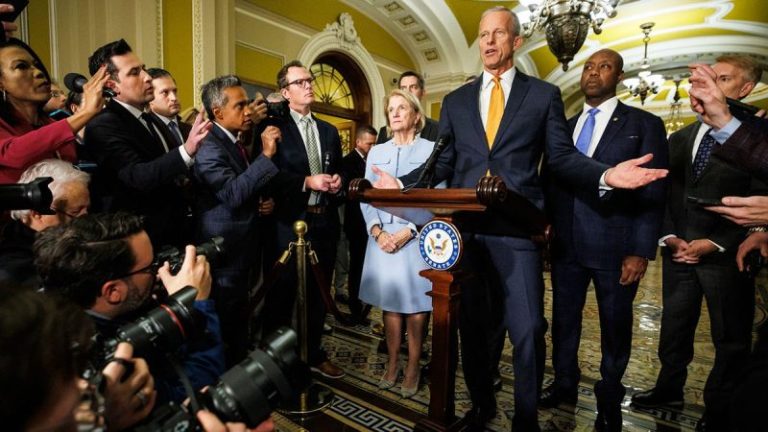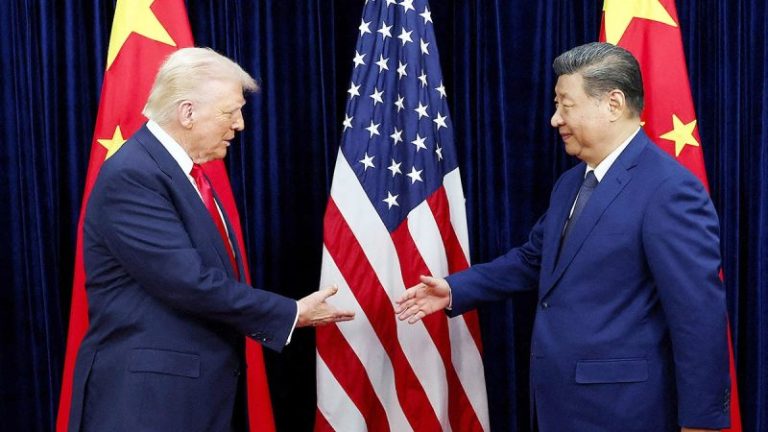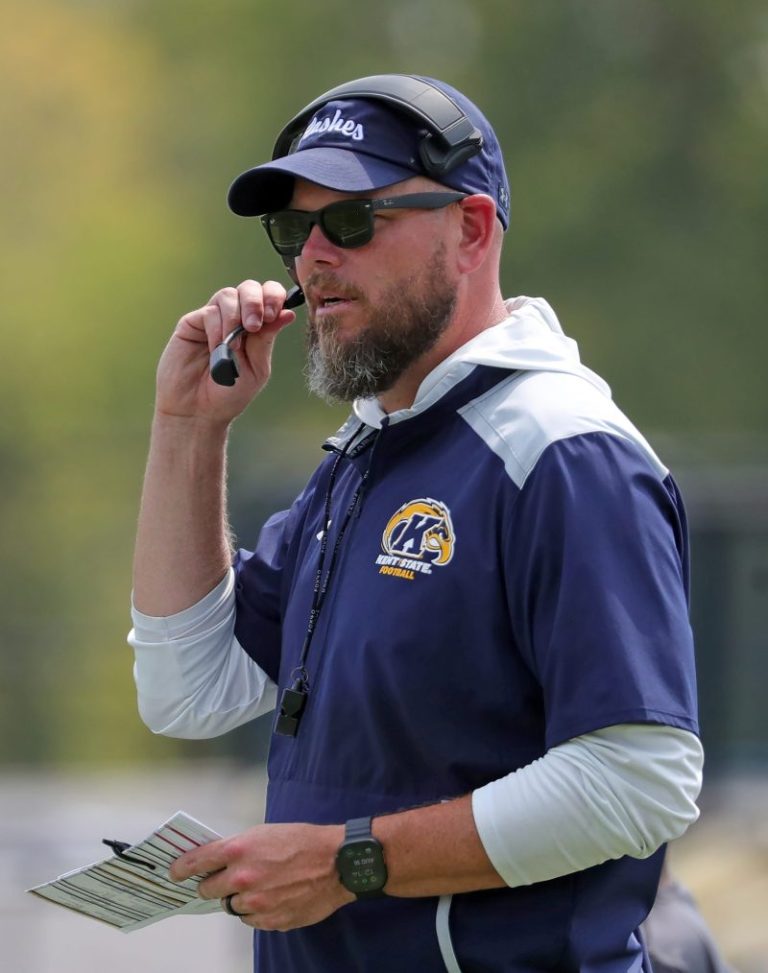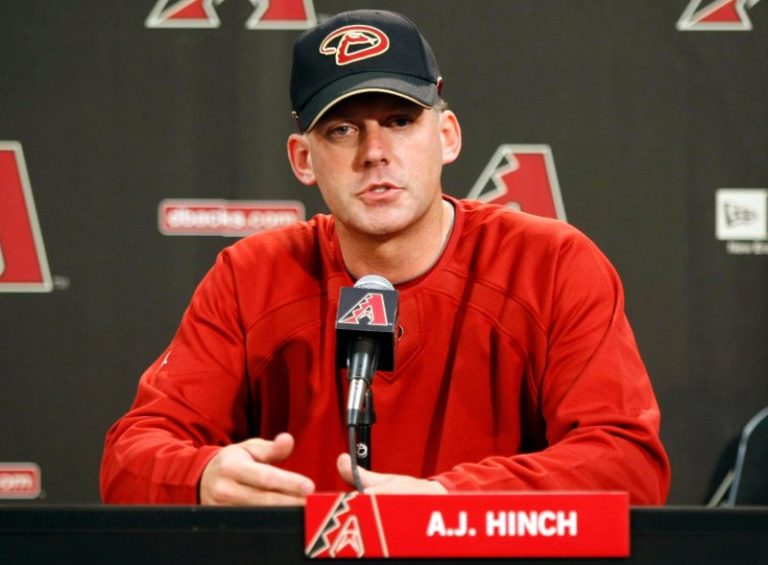The 2025 NFL trade deadline hasn’t built much of a buzz, but there are still several notable players who could be dealt.
The New Orleans Saints are a potential seller to watch thanks to receivers Chris Olave and Rashid Shaheed, as well as cornerback Alontae Taylor.
The New York Jets also have to decide whether they’re prepared to part with key contributors, such as running back Breece Hall and linebacker Quincy Williams.
The recent action around the NFL trade deadline has made it clear that most deals made ahead of next Tuesday’s cutoff will begin in the bargain bin.
After two weeks of no movement, things finally picked back up early this week with a handful of low-stakes swaps. The Los Angeles Rams and Philadelphia Eagles added cornerbacks in Roger McCreary and Michael Carter II, respectively, while the New England Patriots shipped off spare parts in edge rusher Keion White (San Francisco 49ers) and Kyle Dugger (Pittsburgh Steelers). Of course, those exchanges are a far cry from the frenzy set off just last year with the likes of Davante Adams, Amari Cooper and Marshon Lattimore changing places.
And with just one more round of games before teams need to buckle down and decide whether to change course, it doesn’t seem like many of the biggest names that have been floated in rumors – including the Las Vegas Raiders’ Maxx Crosby, Cincinnati Bengals’ Trey Hendrickson and New York Jets’ Quinnen Williams, among others – look particularly likely to be sent packing. Yet any opening for teams to reshape their fortunes is bound to drive intrigue, and there are several notable figures who could be realistic trade considerations.
With that in mind, here is our ranking of the top realistic trade candidates ahead of next Tuesday’s deadline:
2025 NFL trade candidates
1. Chris Olave, WR, New Orleans Saints
Installing second-round pick Tyler Shough as the starting quarterback only to deprive him of his top target might amount to rebuild malpractice. Olave acknowledged that he’s been in discussions with the Saints regarding an extension, and the most reasonable outcome here is for the two sides to stick together given how few true assets New Orleans has at its disposal. But that same problem could entice the Saints to consider flipping the speedy receiver for the right price if the organization doesn’t envision him as a staple for the foreseeable future. With his fifth-year option locked down, Olave would be an enticing target for any passing attack seeking a little midseason juice.
2. Jaelan Phillips, DE/OLB, Miami Dolphins
If the true Pro Bowl-caliber tier of edge rushers is off limits, Phillips might be the best acquirable option. It remains to be seen whether the Dolphins would truly split ways with the former first-rounder, however, given how intent the team’s embattled leadership appears to be in trying to catch up in the playoff race. But creating a bidding war for a pass rusher would be the easiest way to look to the future, and Phillips – even as a potential half-year rental – could be dealt more cleanly than teammate Bradley Chubb. He’s found his stride with 18 pressures in his last four games, according to Next Gen Stats, and he can hold his own against the run as well.
3. Breece Hall, RB, New York Jets
Dealing their lead back was already shaping up to be a difficult proposal for the Jets after No. 2 option Braelon Allen went down with a knee injury that will sideline him until late in the season. Parting with Hall looks like an even more difficult proposition after the fourth-year back ran for a season-high 133 yards and two touchdowns while also throwing the clinching score in a breakthrough first win over the Bengals. Still, even though first-year coach Aaron Glenn has shunted rumors aside, the new regime has to take the long view, and there’s a window to sell high here. If made available, Hall would stand alone as the most appealing ball carrier available thanks to his ability to shoulder the load – he ranks sixth in rushing yards – while also serving as an every-down contributor. And regardless of whether he moves, the running back demonstrated he knows how to stir up intrigue with his tweeting of a cryptic GIF on Wednesday.
4. Alontae Taylor, CB, New Orleans Saints
Competent starting cornerbacks are difficult to come by at the trade deadline, so an imbalance between supply and demand pushes Taylor up the board a bit here. Losing the talented cover man would further dent a ramshackle Saints secondary, but he’s one of the more valuable chips that the organization has at its disposal. Taylor’s versatility, aggressiveness and playmaking streak could make him a coveted piece for any defense due for a little something extra on the back end.
5. Quincy Williams, LB, New York Jets
Younger brother Quinnen seems likely to stay put, but might Gang Green part with Quincy? The front office has already made a substantial investment at linebacker with Jamien Sherwood’s three-year, $45 million deal in March, and a rebuilding team probably doesn’t want to approach the top of the market twice at a non-premium position. A reunion with former Jets coach Robert Saleh, under whom Williams became a 2023 All-Pro selection, on the 49ers’ shorthanded defense would be fun, but there could be multiple suitors for a playmaker with good range.
6. Jakobi Meyers, WR, Las Vegas Raiders
The Silver and Black’s understandable refusal to oblige Meyers’ trade request before the season was based on the presumption that a return to relevance was imminent. Things change quickly, though. The Raiders are just 2-5 and look as far back as ever in the hypercompetitive AFC West. With Meyers poised for an exit this spring in free agency, there’s little reason for either side to see this arrangement out given that Las Vegas – flush with more than $100 million in projected cap space for 2026, according to Over The Cap – doesn’t seem likely to reap any compensation pick rewards for his departure. In a thinned-out receiver market, the seventh-year veteran holds distinct value as a complementary piece who could help stabilize an aerial attack.
7. Riq Woolen, CB, Seattle Seahawks
Doesn’t seem like there’s much of an impetus to take any parts away from a Seahawks defense that’s conceding the third-fewest yards per play (4.7) of any team. Still, it’s clear after a season-and-a-half that Woolen is an odd fit for Mike Macdonald’s defense and a long shot to hang around in 2026, when he’s set to hit the open market. Woolen is coming off an excellent outing against the Houston Texans in which he allowed just two catches for 13 yards on seven targets. Depth concerns may ultimately dissuade Seattle from shipping him off, but the 6-4, 210-pound cornerback should intrigue any teams that lean heavily on man coverage.
8. David Njoku, TE, Cleveland Browns
With less than $1.26 million in base salary, Njoku figures to be one of the cheaper options out there, as landing the former first-round tight end likely won’t necessitate forking over much draft capital. He’s been hobbled by a knee injury, but he still produces as a receiver. The Browns already have seen rookie Harold Fannin Jr. position himself as the long-term answer at tight end, so it’s time for Cleveland to scrounge up whatever it can for Njoku.
9. Rashid Shaheed, WR, New Orleans Saints
If dealing Olave is a non-starter for a New Orleans team that seemingly resists a full rebuild at every turn, maybe a more reasonable outcome would be sending off Shaheed. The dynamic downfield target could jolt any offense with his deep speed, which hasn’t been put to optimal use in a season in which his average yards per catch has plummeted from 17.5 to 11.1. It’s worth noting, though, that Shough took an early shine to him, with Shaheed getting eight of his season-high 12 targets last week after the rookie signal-caller was subbed in for Spencer Rattler.
10. Kevin Zeitler, G, Tennessee Titans
At 35, he’s spending the twilight of his career with a franchise that has already fired its coach. Beyond providing Cam Ward a tiny bit more comfort in an already trying year for the rookie, there’s little point in keeping Zeitler, who, like the recently traded Roger McCreary, might not be a priority for Tennessee to re-sign. Plenty of contenders could use some fortifying on the interior, and the 2023 Pro Bowl selection could get back to doing his best work for a legitimate playoff threat after doing superlative work with the Baltimore Ravens and Detroit Lions in recent years.
11. Chig Okonkwo, TE, Tennessee Titans
Tennessee has tried to bring along its receiving corps for Cam Ward with fellow rookies Elic Ayomanor and Chimere Dike playing vital roles. It doesn’t seem as though Okonkwo factors into that future, especially with first-year tight end Gunnar Helm steadily progressing. A major run-after-catch threat, Okonkwo could find his talents better appreciated elsewhere.
12. Arden Key, DE/OLB, Tennessee Titans
The Titans are treading water for the rest of the season, and it’s difficult to say with any confidence that Key figures into the organization’s plans beyond that. The edge rusher’s production has never quite lined up with his physical tools, but Key has reached six sacks in three of his last four seasons. If a contender strikes out on its higher-priced options or just wants to look at a rotational piece on the edge rather than pursuing a full overhaul, he’d be a sensible settling point.
13. Arnold Ebiketie, OLB, Atlanta Falcons
After recording six sacks in each of the last two seasons, the former second-round pick has yet to bag a single one in 2025. Maybe it’s time for a change of scenery, especially with Atlanta having reconfigured its pass rush by equipping new defensive coordinator Jeff Ulbrich with Jalon Walker and James Pearce Jr., both of whom are first-round rookies. The Falcons might resist parting with him as they try to move past a clear letdown through the first two months of the season, but they have to be mindful about their draft assets, as they’re without both their first-rounder and fifth-rounder next spring.


